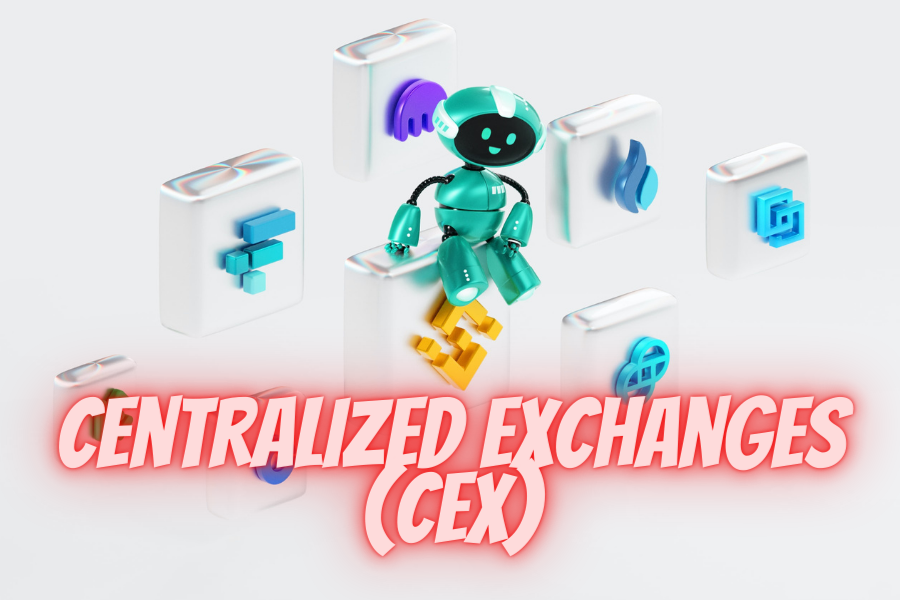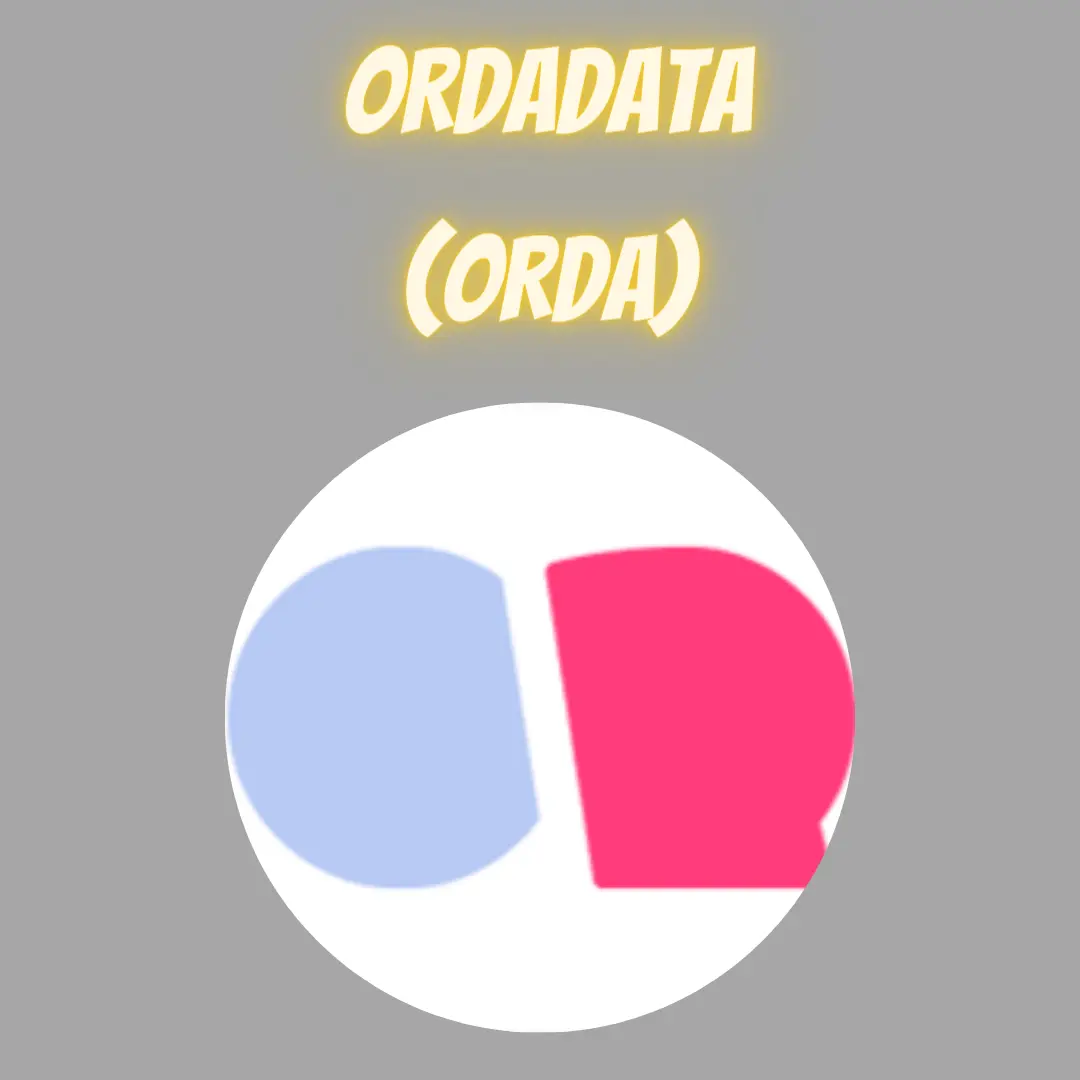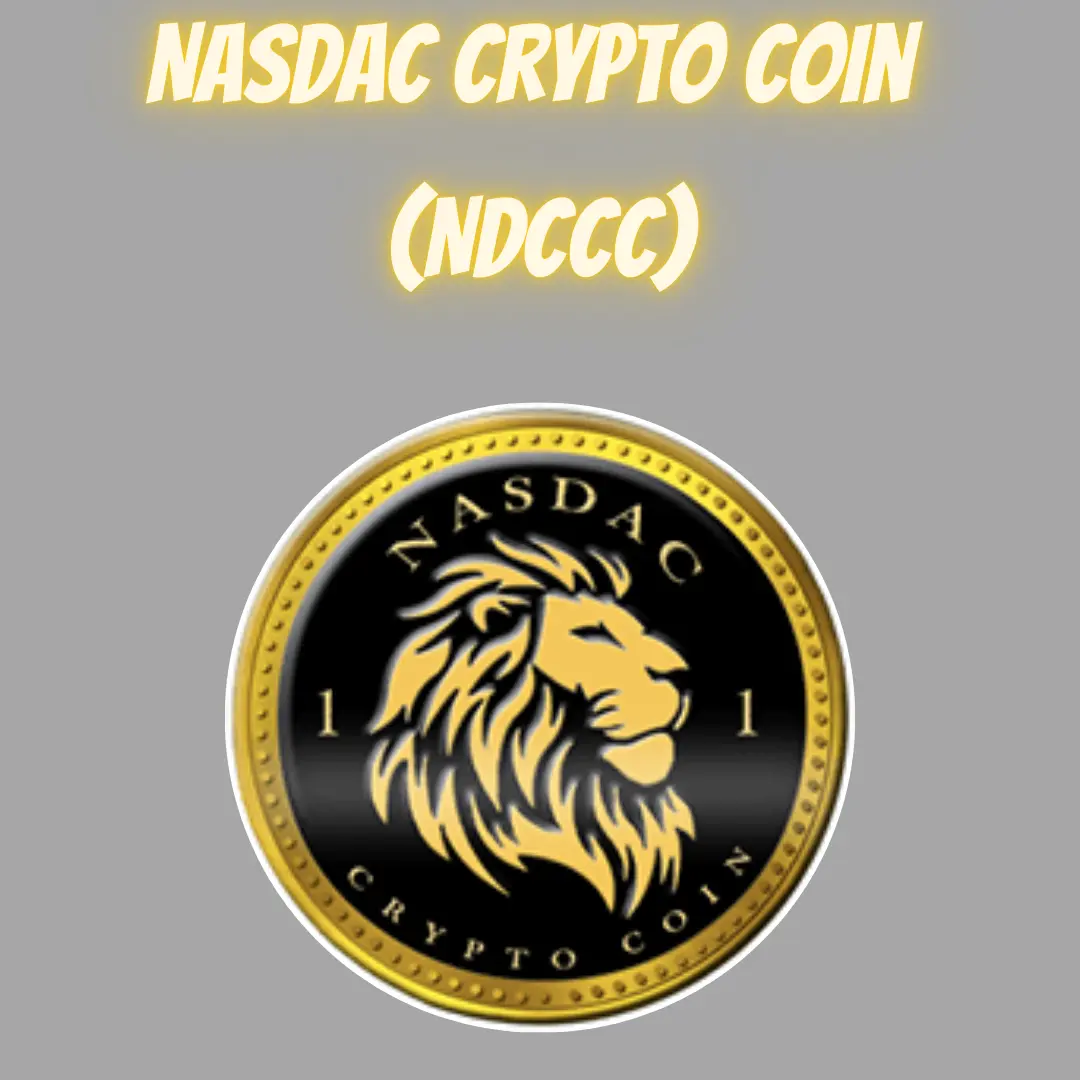The cryptocurrency revolution has transformed how we think about money, trading, and financial freedom. At the heart of this digital transformation lies a critical infrastructure that most crypto enthusiasts interact with daily: centralized exchanges (CEX). Whether you’re a complete beginner or an experienced trader, understanding how these platforms work can make or break your crypto journey.
But here’s the thing – not all centralized exchanges are created equal. Some offer fortress-level security while others have fallen victim to devastating hacks. Some charge minimal fees while others can drain your profits with hidden costs. This comprehensive guide will arm you with everything you need to navigate the complex world of centralized exchanges and make informed decisions about your crypto trading future.
What Are Centralized Exchanges? The Digital Trading Powerhouses
Centralized exchanges are digital platforms that act as intermediaries between cryptocurrency buyers and sellers. Think of them as the Amazon or eBay of the crypto world – they provide the marketplace, handle the transactions, and take care of the technical complexity while you focus on trading.
Unlike their decentralized counterparts (DEX), centralized exchanges operate under the control of a single organization or company. This means they manage user funds, maintain order books, and execute trades through their proprietary systems. While this centralized approach has sparked debates about the true spirit of cryptocurrency decentralization, it has undeniably made crypto trading accessible to millions of users worldwide.
The Anatomy of a Centralized Exchange
Every CEX operates on several core components:
- Order Book System: Matches buyers with sellers at specific price points
- Custody Services: Holds user funds in exchange-controlled wallets
- Trading Engine: Processes thousands of transactions per second
- User Interface: Provides easy-to-use dashboards for trading activities
- Security Infrastructure: Protects user funds and data from threats
The Bright Side: Advantages of Centralized Exchanges
User-Friendly Interfaces That Actually Work
One of the most compelling reasons traders flock to centralized exchanges is their intuitive design and user experience. These platforms invest heavily in creating interfaces that even your grandmother could navigate. From simple buy/sell buttons to sophisticated charting tools, CEXs cater to every skill level.
Most centralized exchanges offer:
- Responsive mobile apps for trading on-the-go
- Educational resources including tutorials and market analysis
- 24/7 customer support (though quality varies significantly)
- Multiple language support for global accessibility
Liquidity That Keeps the Markets Moving
High liquidity is the lifeblood of any trading platform, and centralized exchanges excel in this area. With millions of active users, these platforms ensure there’s always someone willing to buy or sell at competitive prices. This translates to:
- Faster execution of your trades
- Minimal price slippage on large orders
- Tighter bid-ask spreads saving you money
- Market depth allowing for sophisticated trading strategies
Trading Pairs Galore
Centralized exchanges typically offer an extensive selection of trading pairs that would make any trader’s mouth water. From major cryptocurrencies like Bitcoin and Ethereum to exotic altcoins and stablecoins, you’ll find virtually every combination imaginable.
Popular trading pair categories include:
- Fiat-to-crypto pairs (USD/BTC, EUR/ETH)
- Crypto-to-crypto pairs (BTC/ETH, ADA/DOT)
- Stablecoin pairs (USDT/BTC, USDC/ETH)
- Regional fiat pairs catering to local markets
Security Measures That Protect Your Assets
While security incidents grab headlines, reputable centralized exchanges implement robust protection measures that often surpass what individual users could achieve on their own:
- Two-Factor Authentication (2FA) as standard security
- Cold storage solutions keeping the majority of funds offline
- Advanced encryption protocols protecting sensitive data
- Regular security audits by third-party experts
- Insurance coverage for user funds (on select platforms)
The Dark Side: Disadvantages You Can’t Ignore
The Centralization Dilemma
The biggest philosophical challenge with centralized exchanges is right there in the name – centralization. By using these platforms, you’re essentially trusting a third party with your funds, which goes against the “be your own bank” ethos of cryptocurrency.
This centralization creates several risks:
- Single point of failure vulnerability
- Regulatory pressure that can shut down operations
- Management decisions that may not align with user interests
- Technical failures that can halt trading activities
Privacy Concerns in a Transparent World
Centralized exchanges require extensive personal information to comply with Know Your Customer (KYC) and Anti-Money Laundering (AML) regulations. This means:
- Identity verification with government-issued documents
- Address confirmation with utility bills or bank statements
- Transaction monitoring that tracks your trading activities
- Data sharing with regulatory authorities when required
For privacy-conscious users, this level of transparency can be uncomfortable, especially knowing that this data could be compromised in security breaches.
Fee Structures That Add Up
While convenient, centralized exchanges aren’t running a charity. They charge various fees that can significantly impact your trading profitability:
- Trading fees (typically 0.1% to 0.5% per trade)
- Deposit fees (varies by payment method)
- Withdrawal fees (can be substantial for certain cryptocurrencies)
- Inactivity fees (charged by some exchanges)
Pro tip: Always calculate the total cost of your trading strategy, including all fees, before committing to a platform.
Geographic Restrictions and Accessibility
Many centralized exchanges face regulatory constraints that limit their services in certain jurisdictions. This can result in:
- Complete service bans in some countries
- Limited features for residents of specific regions
- Sudden service termination due to regulatory changes
- Restricted trading pairs based on local laws
Top Centralized Exchanges: The Heavy Hitters
Binance: The Cryptocurrency Giant
Binance reigns supreme as the world’s largest centralized exchange by trading volume. Founded by Changpeng Zhao in 2017, this platform has become synonymous with crypto trading excellence.
Key Features:
- Over 600 cryptocurrencies available for trading
- Ultra-low trading fees starting at 0.1%
- Advanced trading tools including futures and options
- Binance Smart Chain integration for DeFi activities
- Comprehensive educational resources through Binance Academy
Coinbase: The Gateway for Beginners
Coinbase has mastered the art of making cryptocurrency accessible to mainstream users. As a publicly-traded company (NASDAQ: COIN), it offers a level of institutional credibility that many competitors lack.
Standout Features:
- Extremely user-friendly interface perfect for beginners
- Strong regulatory compliance in multiple jurisdictions
- FDIC insurance on USD deposits
- Coinbase Pro for advanced trading features
- Extensive institutional services
Kraken: The Security-First Pioneer
Kraken has built its reputation on uncompromising security standards since its inception in 2011. This San Francisco-based exchange has never been successfully hacked, making it a favorite among security-conscious traders.
Notable Advantages:
- Industry-leading security protocols
- Comprehensive range of fiat funding options
- Advanced order types for sophisticated trading
- Kraken Pro app for professional traders
- Excellent customer support reputation
Choosing Your Perfect Centralized Exchange
Security: Your First Line of Defense
When evaluating exchanges, security should be your top priority. Look for these essential security features:
- Multi-signature wallet technology
- Regular security audits by reputable firms
- Bug bounty programs that incentivize security research
- Proof of reserves showing the exchange can cover user withdrawals
- Incident response track record and transparency
Fee Analysis: The Devil in the Details
Understanding fee structures can save you thousands of dollars over your trading career. Create a spreadsheet comparing:
- Maker vs. taker fees (you’ll pay less as a maker)
- Volume-based discounts if you’re a high-volume trader
- Native token benefits (many exchanges offer fee reductions)
- Withdrawal costs especially for Bitcoin and Ethereum
- Payment method fees for fiat deposits
User Experience: Trading Should Be Intuitive
The best exchange is useless if you can’t navigate it effectively. Evaluate:
- Platform responsiveness during high-traffic periods
- Mobile app functionality for trading flexibility
- Educational resources to improve your trading skills
- Customer support quality through multiple channels
- API availability for automated trading strategies
Advanced CEX Features for Serious Traders
Margin Trading: Amplifying Your Potential
Margin trading allows you to borrow funds to increase your position sizes, potentially amplifying both profits and losses. Key considerations include:
- Leverage ratios typically ranging from 2x to 100x
- Interest rates charged on borrowed funds
- Liquidation mechanisms that protect the exchange
- Risk management tools to protect your capital
Futures and Derivatives: Beyond Spot Trading
Many centralized exchanges now offer sophisticated financial instruments including:
- Perpetual futures contracts for long-term positions
- Options trading for advanced hedging strategies
- Prediction markets for event-based speculation
- Tokenized stocks bridging traditional and crypto markets
The Regulatory Landscape: Navigating Compliance
Understanding KYC/AML Requirements
Regulatory compliance is non-negotiable for legitimate centralized exchanges. This typically involves:
- Identity verification with government-issued photo ID
- Address confirmation through official documents
- Source of funds documentation for large deposits
- Ongoing monitoring of transaction patterns
Geographic Considerations
Different countries have varying approaches to cryptocurrency regulation:
- Crypto-friendly jurisdictions like Singapore and Switzerland
- Restrictive regions with limited exchange access
- Evolving regulations in major markets like the US and EU
- Tax implications that vary significantly by location
Frequently Asked Questions
Q: Are centralized exchanges safe for storing large amounts of cryptocurrency?
A: While reputable CEXs implement strong security measures, it’s generally recommended to store large amounts in personal wallets. Follow the “not your keys, not your crypto” principle for long-term holdings.
Q: How do centralized exchanges make money?
A: CEXs generate revenue through trading fees, withdrawal fees, listing fees from projects, and premium services like margin trading and institutional offerings.
Q: What’s the difference between CEX and DEX?
A: Centralized exchanges are controlled by companies and hold user funds, while decentralized exchanges operate on smart contracts with users maintaining control of their assets throughout the trading process.
Q: Can I use multiple centralized exchanges?
A: Absolutely! Using multiple exchanges can provide better trading opportunities, access to different cryptocurrencies, and risk diversification in case one platform experiences issues.
Q: How do I protect myself from exchange hacks?
A: Enable 2FA, use unique strong passwords, withdraw funds regularly, and choose exchanges with strong security track records. Never store more than you can afford to lose on any exchange.
The Future of Centralized Exchanges
The centralized exchange landscape continues evolving rapidly. Emerging trends include increased regulatory compliance, institutional service expansion, and integration with traditional financial systems. We’re also seeing the rise of hybrid models that combine the best aspects of centralized and decentralized exchanges.
Environmental sustainability has become another crucial factor, with exchanges adopting carbon-neutral practices and supporting proof-of-stake blockchain networks.
Taking Action: Your Next Steps
Choosing the right centralized exchange is a crucial decision that will impact your entire crypto trading experience. Start by clearly defining your needs: Are you a beginner looking for simplicity, or an advanced trader requiring sophisticated tools?
Consider opening accounts on multiple exchanges to:
- Compare features and fees firsthand
- Access different trading pairs and opportunities
- Maintain backup options for uninterrupted trading
- Take advantage of platform-specific features
Remember, the cryptocurrency market never sleeps, and neither does the evolution of exchanges. Stay informed about platform updates, security enhancements, and regulatory changes that might affect your trading activities.
The world of centralized exchanges offers incredible opportunities for those who approach it with knowledge and caution. By understanding the advantages, risks, and key factors to consider, you’re well-equipped to make informed decisions that align with your crypto trading goals.







